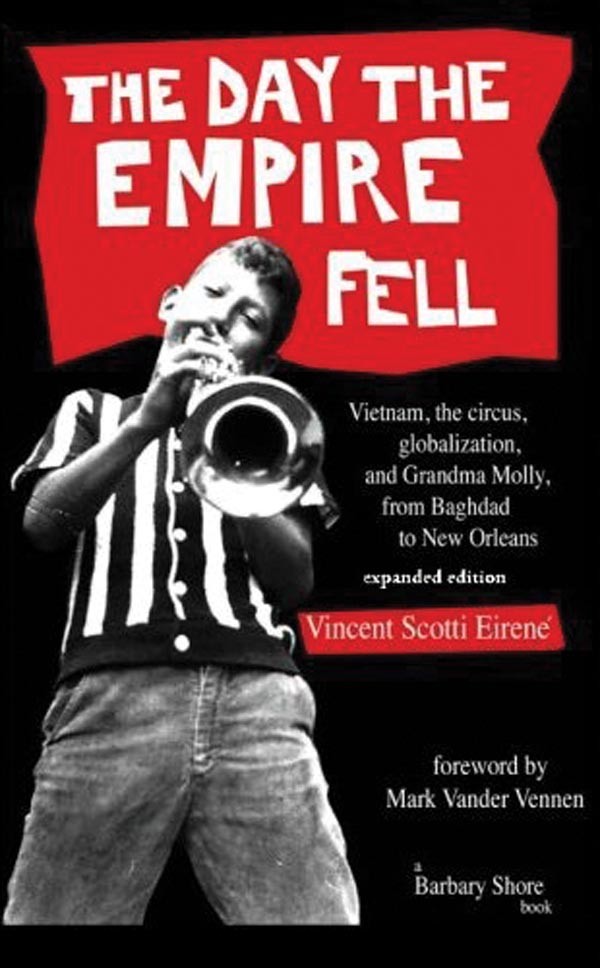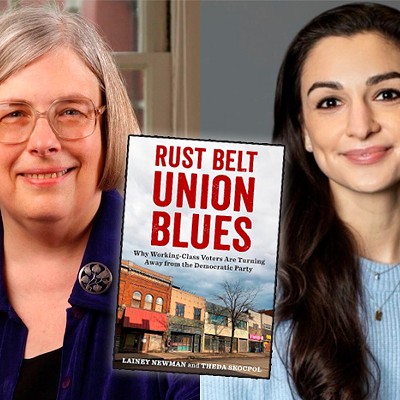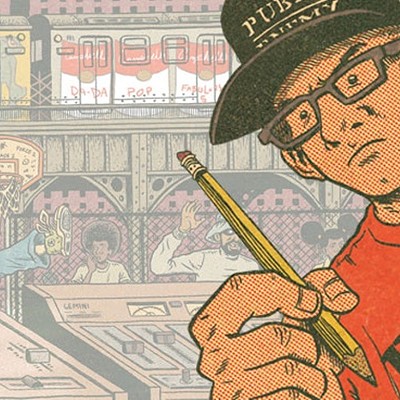In January 1995, Vincent Scott Eirene made a pilgrimmage to Los Alamos National Laboratory to protest the building of nuclear weapons. He walked through a New Mexico snowstorm and -- somehow -- right through the Lab's security gates. Then, as he writes in his memoir-like anthology The Day the Empire Fell, I knelt down to pray for peace. Immediately, a female guard turned around and asked me what I was doing. Looking up through the driving snow, I replied, I have come here to pray for peace. In a professional manner, the guard cried out, Oh, shit!
Here's the veteran activist's literary persona in a nutshell: committed, almost absurdly idealistic, yet also typically good-humored to the point of comedy.
As a reporter who's followed Eirene's civil disobedience, organizing endeavors and media activism for two decades, I'd say that's pretty much his persona in person, too.
In what's become Time's Year of the Protester, this engaging, 127-page paperback from Barbary Shore press updates an earlier book of the same title, expanded to include Eirene's reportage from a 2004 trip to occupied Iraq.
Eirene, 59, writes episodically of his Pittsburgh childhood with a domineering father and loving extended family, and his early tastes of nonviolent activism, like getting arrested at the White House with famed anti-nuclear activist Philip Berrigan.
Much of Empire recalls Eirene's life on the road in the mid-1990s, after a series of shootings on the North Side convinced him to temporarily close the Duncan and Porter House, the homeless shelter he would ultimately run for decades there.
The book also includes a 1987 college-newspaper interview in which he explains his opposition to Carnegie Mellon's largely Pentagon-funded Software Engineering Institute; a successful anti-logging campaign in Oregon; and ongoing opposition to mountaintop-removal coal-mining in West Virginia. A reproduced news clipping attests to Eirene's friendship with actor and activist Martin Sheen.
Occasionally, Eirene pauses to offer some philosophy, about things like the necessity of nonviolence to change a violent world, and why building community is more important than building organizations.
Such essays are insightful and impassioned, but what's perhaps most notable is how much of this book Eirene gives over to others, like the former Black Panther organizing grassroots relief in post-Katrina New Orleans, or the Baghdad doctor calmly detailing shortages of basic medical supplies. For Eirene, letting these voices be heard is also part of who he is.















